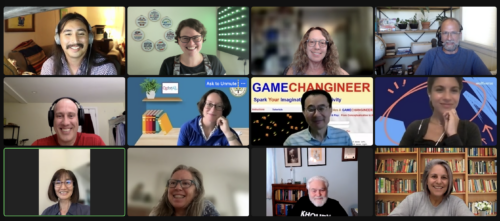Are you interested in learning more about recent research in CS education and how it might be useful to your classrooms? Join our CS Education Discussion Group!
The CS Education Discussion Group is a weekly group for those who would like to learn more about ongoing research in CS education and discuss it in the context of your own experiences and unique classroom settings. Led by IACE volunteer, Dr. Emily Thomforde, these facilitated discussions bridge the known gap between research findings and classroom practices and provide a place for teachers to reflect on their own experience.

Our discussion group meets weekly on Fridays, 2-3pm PST. Join here.
You can also join our Google Group for frequent updates about the topic of discussion for that week.
All are welcome, including latecomers and those anywhere in the world. Reading the paper ahead of time is suggested, but not required. No commitment is necessary, just join when you can.
